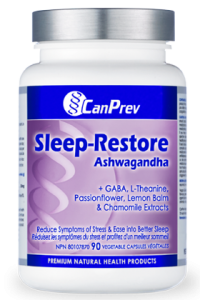If you’re experiencing low moods, frequent colds and flus, and poor digestion, could it be because you’re not sleeping enough? It’s true: something as easy and luxurious as deep sleep can really be the missing key to vibrant health and wellness.
The importance of sleep to overall health
Sleep impacts your health in countless ways. Rest supports mental health and balanced moods. It also keeps the immune system strong and enhances gut health.
Sleep and mental health
Sleep and mental health go hand in hand. While anxiety and depression affect sleeping patterns, the reverse is also true. Better sleep enhances mental health and mood. Sleep improves learning, memory, and cognitive function. That’s because deep REM sleep is essential for memory consolidation and information processing in the brain.
Sleep and your immune system
Your immune system works hard around the clock to protect you against bacteria, viruses, pathogens, and diseases. In order to stay alert and well, your immune system needs sleep. This is one of the reasons why you feel so sleepy when you’re sick, and why lack of sleep can lead to more frequent infections. Sleep provides the opportunity for immune cells (like cytokines and natural killer cells) to fight off any harmful invaders.
Sleep and digestion
Sleep disturbances and sleep loss (consistently sleeping less than 7 hours a night) are associated with digestive disorders. Lack of sleep increases the risk of developing irritable bowel syndrome (IBS), inflammatory bowel disease, and even colorectal cancer. On the other hand, healthy sleep patterns and plentiful rest are associated with better digestion and gut health.
What does healthy sleep look like?
Everyone needs sleep in order to function and stay well. The number of hours you need to sleep to function optimally varies from person to person. But experts suggest a minimum of 7 hours a night is the magic number for most folks.
The sleep-wake cycle is based on the circadian rhythm. Over a 24-hour cycle, you’ll notice certain patterns in your mental, physical, and behavioural processes. Much like the sun and moon, you run on a cycle too: one that is defined by waking hours and sleeping hours.
Your internal body clock regulates bodily processes like recovery, rest, and digestion. The circadian rhythm is governed by the pineal gland (which releases melatonin, the sleep hormone) and the endocrine system. But many modern factors can harm the circadian rhythm and throw off your sleep-wake cycle.
Factors that harm healthy sleep
Common activities like too much screen time in the evening can throw off the circadian rhythm. Other culprits include not seeing enough natural light during the day, caffeine, stress, and alcohol. Finally, jet lag and shift work can also disrupt your internal clock. Those who work late nights have to sleep during the daytime. This confuses your body’s internal clock and lowers melatonin production. Similarly, frequently travelling to different time zones can reduce your melatonin levels as well.
What are some things that can be done to support healthy sleep?
Getting better sleep is always the right health decision: sleeping well prevents obesity, supports heart health, and promises better moods and lower feelings of anxiety. If you want to enhance the quality of your sleeping time, there are a few things you can do to protect your circadian rhythm and nurture your sleep-wake cycle. From lifestyle and stress management to diet, supplements, and sleep hygiene, there’s no shortage of solutions for better sleep.
Lifestyle for better sleep: Stress management & regular exercise
The relationship between stress and sleep can be messy because stress leads to poor sleep, and conversely, poor sleep leads to stress. But stress management techniques like deep breathing and regular exercise can do wonders for better sleep.
Deep breathing helps activate the parasympathetic nervous system, which is responsible for the rest-and-digest state of relaxation (the opposite of fight-or-flight). Exercise, on the other hand, helps release stress-fighting endorphins. One study followed over a thousand nurses and found that better stress management led to better sleep, and vice-versa.
Diet & sleep: Key restorative nutrients and supplements
Melatonin is a natural hormone that the body will release when the circadian rhythm is in balance. You can also find melatonin as a supplement to be taken at bedtime. It’s a safe and effective remedy to support sleep, recover from jet lag, or deal with altered sleep schedules.
Herbs and nutrients that support healthy sleep include lemon balm, passionflower, skullcap, valerian extract, ashwagandha, GABA, and L-theanine.
- Lemon balm is a gentle digestive herb with calming benefits for the nervous system.
- Passionflower, skullcap, and valerian root are all sedatives and can be enjoyed in the evening in preparation for sleep.
- Ashwagandha is a stress-reducing adaptogenic herb with a strong effect on re-establishing a healthy sleep-wake cycle. It works best when taken daily over long periods of time.
The functional supplements GABA and L-theanine together have the potential to strongly enhance the quality of your sleep. They also lower anxiety and increase serotonin (the happy hormone) in the brain.
Looking for some sleep-friendly recipes? Check out these recipes that feature some of our supplements that can help you catch those Z’s:
- Chocolate Almond Lavender Melts
- Chocolate Melatonin Mousse
- Hot Caramel Carob Latte
- Pink Rose Milk Relaxing Elixir
Your sleep hygiene: Setting boundaries around bedtime
Committing to better sleep hygiene can do wonders for your health and wellbeing. Setting boundaries around bedtime can be tricky at first, but the rewards are worth it. Avoid caffeine, alcohol, and too much screen time before bed. Try herbs and supplements like Sleep Restore, Sleep Reset, or Magnesium Sleep for better sleep. And on the weekends, try and keep your alarm off so you can give your body the chance to sleep until you’re fully rested.











Leave A Comment